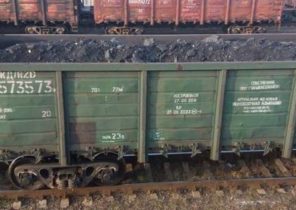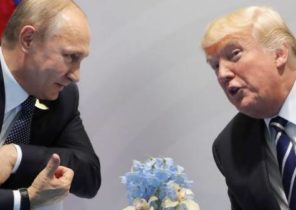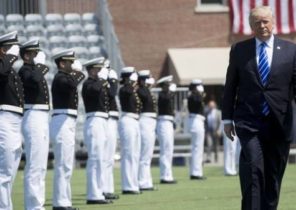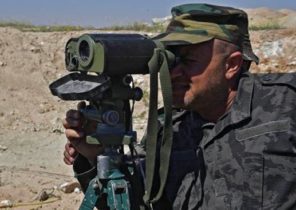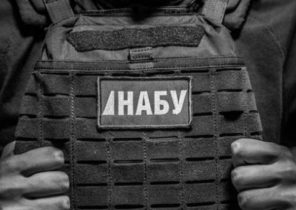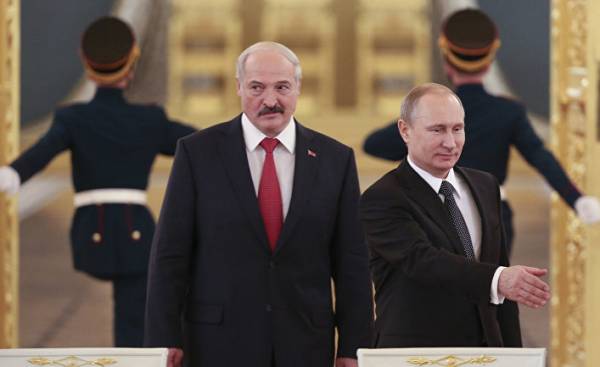
What happens in the relationship between Belarus and Russia? On the surface, a cascade of conflicts that overlap each other and reinforce each other.
Last press conference of Alexander Lukashenko, his sharp political statements have become the culmination of this cascade is that there is a threat to jail the head of the Rosselkhoznadzor Sergey Dankvert.
The dispute on gas prices dragged on for more than a year, oil conflict — more than six months, a variety of restrictions on food exports of Belarus in Russia began to occur regularly almost immediately after the introduction of Russia’s counter-sanctions against the US and the EU, and the most recent conflict — the decision about the actual restoration of the border with Belarus.
Border on the lock
The last decision is to stay apart. The reason is called Lukashenka’s decree on the right of visa-free entry to Belarus for citizens of 80 countries for five days through the capital airport “Minsk-2”. However, it appears that this is just an excuse.
In fact, the order of the chief of FSB on the establishment of border zones on the border with Belarus was preceded by the decree of Lukashenka for a five-day bezveze. Furthermore, it is not obvious that the Belarusian decision would greatly increase the number of foreigners coming to Belarus, and especially the number of foreigners who will try to get from Belarus to Russia without a Russian visa.
By the way, Kazakhstan has introduced a visa-free regime, and for 15 days three years ago. If Moscow interprets the current decision of Minsk as unfriendly to it, then it is no more unfriendly than the decision of Astana three years ago. Besides, the current “closed” borders of Belarus and Russia made by the Russian side, to put it mildly, strange and super hard form. Before appropriate solutions to border control of vehicles at the border did not exist, except that the electoral checks. It can be assumed that this gave Russia trouble.
But now the pendulum has swung to the other extreme. For citizens of third countries traveling to Russia by road via Belarus, the border was shut in the literal sense. If earlier they have not checked the availability of Russian visa at the border, and now Russian visa gives right to enter Russia through the border. Foreigners declare that the border is no international border crossing, so the only opportunity for them to get into Russia to go through Lithuania, Latvia, Ukraine, as anywhere, not only through Belarus.
As reported, the citizens of countries who do not need a visa to enter Russia, Ukraine, Moldova — across the border is also not allowed. Allowed only citizens of Belarus. Such a crazy situation, no one on the border of Russia.
The Russian decision was in something similar to the administration’s decision to trump: trump only denied entry across any border of the United States citizens of seven countries, and Moscow has effectively banned entry to Russia for citizens of all countries, except for Belarus, after one of his border with Belarus.
Perhaps, over time, the border crossings will pitch, if the crisis is not resolved, but so far the impression that I really wanted to quickly punish Belarus, “show her her place.” And the reason for such drastic measures seem not some of the problems associated with the situation on the border, at least they are not alone.
For each “Yes” is your “no”
One gets the impression that the reason all the same — the change is not even the policy of Minsk, and its mood, atmosphere. In fact, Belarus has been, and remains, in every conceivable economic, political and military alliances with Russia.
The warming of relations with the West occurred through the intermediary role of Belarus in Donbas conflict and the release of political prisoners, took no institutional forms. We can say — have not yet adopted, but in Minsk yet not say another word about any rapprochement.
On Belarus since the beginning of the warming not hit the West the Golden rain, the negotiations with the IMF for a loan of three billion dollars stretch for a couple of years with varying success, but without result.
What has changed? Atmosphere. If a couple of years ago the foot of the Western representatives did not set foot on the Belarusian land, there were sanctions against a number of Belarusian officials. Now sanctions are lifted, there is an intensive dialogue, representatives from the Western high grade series coming to Minsk, the Belarusian representatives in Western capitals.
And, of course, Ukraine. The policy of Belarus concerning the conflict between Russia and Ukraine — balancing for each “Yes” is your “no” or at least “Yes, but.” Crimea did not recognize the Russian (and Ukrainian too), against the UN-ovskih resolutions condemning Russia over the Crimea voted regularly, but promised first post-Maidan Ukraine’s leadership that the North attack on Ukraine will not. Tick, Yes or no. The crown — the Minsk agreements referenced all — in Kiev and Moscow, Washington and European capitals, and the Donbass separatists. While Minsk was not only the site of the signing of the relevant agreements, this is where the negotiation infrastructure is deployed. To sense from it a little. What’s the alternative?
And the wind returns to normal?
In a sense, everything was. In 2008, Belarus also has not recognized the independence of Abkhazia and South Ossetia, in 2008-2010 between Belarus and the EU was also “honeymoon” of normalizing relations, too, if irritated Moscow. And, as now, not something specific. But jealous husband is annoying flirt half as such, and not its consequences.
All sorts of “wars” — gas, oil, food, information — and do not count. During the first gas war in 2004 when you had disconnected the gas supply to Belarus, Lukashenko called this move of Moscow “terrorism at the highest level.”
This is an interesting feature of the relations arising both from the political cultures of Belarus and Russia, and peculiarities of the personality of Alexander Lukashenko. “Diplomacy scandal” is his style of dealing with expensive ally.
If you use the analogy from Boxing, the political clinch is the optimal tactic for Lukashenko. In a purely economic conflict, a small Belarus it is difficult to resist the huge Russia. But in the political struggle… At least it used to be different.
Although, of course, nothing is repeated. In the first place, apparently, because changing is not so much Belarus as Russia. First, “no money but you stay there”, said Dmitry Medvedev. Well, not exactly no, but they’re pitiful to give Belarus.
Secondly, the changing criteria of the Russian Alliance, and leadership. The logic is this: we are fighting in Syria (and in the Donbass, don’t tell anyone), and Belarusians why not stand with us shoulder to shoulder? What is an ally?
There was a time when Lukashenko in Russia seemed to many the ideal or, at least, a nice alternative to the master of the Kremlin. Which led to “soft power” of Minsk in Russia to give Belarus money the Kremlin could then, but public opinion has a certain value and in authoritarian countries.
“Quiet, peaceful and comfortable country”
But now things are different. Putin took the Crimea, Aleppo took, and that Lukashenko took? During the aforementioned press conference, he formulated his vision of the Belarusian national dreams: “a quiet, peaceful and comfortable country.” This is not about Russia today. Maybe not about Russia at all, at all times. But not about today’s Russia — that’s for sure.
Should of said that tomorrow Belarus will come out of the Alliance with Russia, and will rush into NATO or the Russian “little green men” will come to teach Belarusians the right geopolitical choice? There should not be.
Russia will press on Belarus, at the same time most in accordance with the modification of the formula “friend of all, enemy — only the law.” And Belarus — in the middle, mate, not all, but also not only the law.
Belarus will counterattack, as did Lukashenka in the end of last year refused to go to the summits EAEC and CSTO, and not having signed the new customs code of the EAEU. Moreover, the counterattacks will be applied in the political sphere. From Russia, of course, do not lose anything from Lukashenka’s absence at the summits of the integration formations, but the Eurasian Union, even as the formal symbol of the unity of post-Soviet countries, to lose all do not want.
Sooner or later economic disputes will be resolved, as it happened many times in the past. And the dispute over the border too, sooner or later will be resolved. Yes, it is, in fact, nothing to resolve. Russia has borders with all its neighbours, including with the Union of Kazakhstan. A visa — free regime even with a very non-Union of Ukraine. Well, so is the border with Belarus.
The situation of lack of boundaries — even the legacy of the previous era, the Yeltsin era, when it seemed that reintegration into one state can indeed occur, though not soon.
So tomorrow there will be nothing drastic. But the trend is changing, the future of relations between the two countries. And the conflict over the border in a sense is symbolic: the doors are closing. This is not so much the dynamics of the difficult personal relations between the two authoritarian — Lukashenko and Putin — as the logic of formation of national States, and both Belarusian and Russian.
Yuri Drakakhrust — journalist, presenter of the analytical program “Prague accent” of the Belarusian service of Radio Liberty. A columnist of the largest private Belarusian Internet portal TUT.BY. The author of two books. He lives in Prague.
